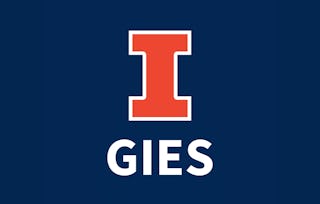Il s'agit de la deuxième partie d'une séquence de deux cours sur la comptabilité financière. Les cours FINANCIAL ACCOUNTING I & II, dispensés consécutivement, vous fourniront une base solide pour aborder de nombreuses questions financières. Comptabilité I couvre les bases, tandis que Comptabilité II traite de sujets plus avancés. Les sujets abordés sont "généraux" et s'appliquent aux pratiques comptables du monde entier - que ce soit aux États-Unis, en Europe, en Asie, etc. Elle est parlée par les dirigeants, les employés, les investisseurs, les analystes financiers, les auditeurs internes et externes, les conseils de surveillance, les comptables de gestion, les banquiers et les autres décideurs avec lesquels les dirigeants interagissent régulièrement. Il est largement admis que les futurs chefs d'entreprise doivent comprendre ce langage afin d'interpréter et d'utiliser les états financiers et autres informations comptables à des fins de gestion interne (par exemple, planification, direction, contrôle) ainsi qu'à des fins de communication d'entreprise (par exemple, marchés des capitaux, banques, agences de notation). Si vous voulez être compétitif dans ce domaine, il vous sera utile d'acquérir une connaissance pratique de la comptabilité. Ce cours s'adresse aux étudiants ayant peu ou pas d'expérience en comptabilité financière. En fin de compte, ce sont les chiffres qui comptent dans le monde des affaires. Vous ne pouvez pas y échapper, c'est pourquoi vous devez bien les apprendre. Contrairement à ce que vous pourriez croire, vous ne pouvez pas devenir un professionnel prospère si vous ne maîtrisez pas les chiffres du monde financier. Ce cours vous apprendra à le faire.

Comptabilité 2

70 avis
Expérience recommandée
Ce que vous apprendrez
Maîtriser les mécanismes de la comptabilité financière.
Comprendre la structure, les fonctions et l'interrelation des états financiers de base (bilan, compte de résultat et tableau des flux de trésorerie).
Être capable d'effectuer une analyse fondamentale structurée des états financiers afin d'évaluer la rentabilité, la liquidité et la solvabilité d'une entreprise.
Connaître les règles comptables régissant la comptabilisation et l'évaluation des activités, événements et transactions clés.
Compétences que vous acquerrez
- Catégorie : Marché financier
- Catégorie : Fusions et acquisitions
- Catégorie : Gestion des actifs
- Catégorie : Gestion des profits et pertes (P&L)
- Catégorie : Reconnaissance des revenus
- Catégorie : Amortissement
- Catégorie : Comptes débiteurs
- Catégorie : Bilan
- Catégorie : Comptabilité générale
- Catégorie : Actions
- Catégorie : Flux de trésorerie
- Catégorie : états financiers
- Catégorie : Impôts
- Catégorie : Comptabilité
- Catégorie : Comptabilité des stocks
- Catégorie : Titres (Finance)
- Catégorie : Rapports financiers
- Catégorie : Finance d'entreprise
- Section Compétences masquée. Affichage de 9 compétence(s) sur 18.
Détails à connaître

Ajouter à votre profil LinkedIn
39 devoirs
Découvrez comment les employés des entreprises prestigieuses maîtrisent des compétences recherchées

Il y a 9 modules dans ce cours
Pourquoi apprendre la comptabilité ? Parce qu'elle fait partie intégrante de la finance, l'une des professions les plus recherchées et les mieux rémunérées au monde. Les connaissances financières sont extrêmement précieuses d'un point de vue personnel et professionnel, quel que soit le type d'emploi que vous occupez.
Inclus
1 vidéo2 lectures
Les comptes clients, ou la vente à crédit, sont une caractéristique des sociétés modernes. Les créances impliquent des estimations complexes et le jugement de la direction. Elles sont laissées à la discrétion de la direction et impliquent une grande flexibilité. Les objectifs d'apprentissage de cette session sont les suivants Comprendre les créances ; Comprendre le cycle de vente ; Comprendre comment déclarer les créances irrécouvrables ; Comprendre la méthode du pourcentage des ventes et le pourcentage des créances (c'est-à-dire la méthode du bilan) ; Comprendre les radiations de créances ; Comprendre comment les créances peuvent être manipulées ; Comprendre la rotation des créances. Les stocks constituent souvent le poste le plus important du compte de résultat d'une entreprise (par le biais du coût des marchandises vendues (CMV)). Il est donc important de comprendre les stocks, ce qui permet d'alléger les opérations et de les rendre plus efficaces. Les objectifs d'apprentissage de cette session sont les suivants Comprendre les stocks ; Comprendre comment les stocks sont convertis en coût des marchandises vendues ; Comprendre la différence entre les matières premières, les travaux en cours et les produits finis ; Comprendre la règle du moindre coût ou du marché (LCM) ; Comprendre les dépréciations de stocks (ou radiations, ou dépréciations) ; Comprendre la gestion des stocks, et comment la réduction du fonds de roulement permet de conserver la trésorerie ; Comprendre la rotation des stocks.
Inclus
3 vidéos2 lectures5 devoirs
Les actifs à long terme sont au cœur de la capacité de production des entreprises. Qu'ils soient tangibles ou intangibles, ces actifs sont au cœur de la capacité de production d'une entreprise. Les objectifs d'apprentissage de cette session sont les suivants Comprendre les actifs à long terme ; Comprendre les différences entre les actifs corporels et incorporels ; Comprendre les concepts de dépréciation, d'amortissement et d'épuisement ; Comprendre les tests de dépréciation ; Comprendre les implications sur les états financiers de l'achat et de la vente d'actifs ; Comprendre la différence entre la capitalisation et la passation de charges Comprendre le concept des justes valeurs par rapport aux coûts historiques ; Comprendre comment la R&D est traitée dans les états financiers ; Comprendre la rotation des actifs fixes ; Comprendre comment les actifs à long terme sont manipulés.
Inclus
3 vidéos2 lectures5 devoirs
Les fonds propres sont ce qui reste aux actionnaires. Les fonds propres nous rendent heureux et nous incitent à acheter des produits. Les fonds propres sont l'illusion de la richesse alors que tout n'est (parfois) que sur le papier. Les objectifs de cette session sont les suivants Comprendre les actions ordinaires et le capital versé ; Comprendre les actions propres ; Comprendre les rachats d'actions et les dividendes ; Comprendre le BPA.
Inclus
3 vidéos2 lectures5 devoirs
Les passifs, les obligations et les contrats de location sont au cœur de la compréhension des passifs. Trop d'entreprises ont fait faillite parce qu'elles ne comprenaient pas l'importance du passif et son effet sur le risque de l'entreprise. Les objectifs de cette session sont les suivants Comprendre comment l'effet de levier conduit au risque ; Comprendre la différence entre les contrats de location-exploitation et les contrats de location-acquisition (crédit-bail) ; Comprendre les prêts bancaires, et leur comptabilisation ; Comprendre les obligations, et leur comptabilisation ; Comprendre les produits différés, les passifs éventuels, et les provisions.
Inclus
3 vidéos2 lectures5 devoirs
Les actifs financiers sont à l'origine de trop nombreuses crises et sont particulièrement importants pour les banques. En outre, les actifs financiers nous aident à comprendre comment les entreprises investissent dans des obligations, des actions et d'autres investissements. Les objectifs de cette session sont les suivants Comprendre la différence entre les titres de transaction (ou titres négociables) et les investissements en actions (ou investissements dans des sociétés affiliées) ; Comprendre l'évaluation au prix du marché ; Comprendre les instruments détenus jusqu'à l'échéance ; Comprendre les obligations émises avec une prime, au pair et avec une décote.
Inclus
3 vidéos2 lectures5 devoirs
Plus de 40 000 fusions et acquisitions (F&A) sont réalisées chaque année dans le monde. Les F&A permettent aux entreprises de se développer, d'acquérir des ressources vitales et de contrôler les chaînes d'approvisionnement et les marchés de produits. Les objectifs de cette session sont les suivants Comprendre la comptabilité des fusions et acquisitions ; Comprendre les concepts de goodwill et d'intérêts minoritaires ; Comprendre la dépréciation du goodwill ; Comprendre le processus de consolidation et les écritures d'ajustement.
Inclus
3 vidéos2 lectures5 devoirs
Les impôts sont une chose que personne n'aime (sauf le gouvernement !). Les impôts nous font grimacer, les impôts nous font pleurer. Néanmoins, nous devons tous payer des impôts, et nous avons besoin de comprendre les règles et de savoir comment tirer parti de la flexibilité de ces règles. Les objectifs de cette session sont les suivants Comprendre les impôts, la charge fiscale et l'impôt payé ; Comprendre comment les gouvernements utilisent les impôts pour inciter le comportement des entreprises ; Comprendre la différence entre les différences temporaires et les différences permanentes ; Comprendre les déductions, et les ajouts, au revenu imposable ; Comprendre pourquoi certaines entreprises paient si peu d'impôts.
Inclus
3 vidéos2 lectures5 devoirs
La gestion des bénéfices est probablement le terme le plus courant lorsque l'on parle de comptabilité. La fraude. Et la fraude est partout, malheureusement. L'objectif de cette session est de comprendre.
Inclus
4 vidéos1 lecture4 devoirs
Instructeurs


Offert par
En savoir plus sur Finance
 Statut : Prévisualisation
Statut : PrévisualisationUniversity of Lausanne
 Statut : Essai gratuit
Statut : Essai gratuitUniversity of Illinois Urbana-Champaign
 Statut : Essai gratuit
Statut : Essai gratuit Statut : Essai gratuit
Statut : Essai gratuitUniversity of Illinois Urbana-Champaign
Pour quelles raisons les étudiants sur Coursera nous choisissent-ils pour leur carrière ?

Felipe M.

Jennifer J.

Larry W.

Chaitanya A.
Avis des étudiants
- 5 stars
90 %
- 4 stars
8,57 %
- 3 stars
0 %
- 2 stars
1,42 %
- 1 star
0 %
Affichage de 3 sur 70
Révisé le 5 déc. 2024
The professor explains really well! The quizzes are also helpful and cover everything.
Révisé le 1 juil. 2025
The presentation and the readings were comprehensive yet easily understandable. The quizzes helped increase my comprehension of every particular accounting aspect in-depth.
Révisé le 19 déc. 2024
A great and thorough course, covering a large variety of different topics in accounting.

Ouvrez de nouvelles portes avec Coursera Plus
Accès illimité à 10,000+ cours de niveau international, projets pratiques et programmes de certification prêts à l'emploi - tous inclus dans votre abonnement.
Faites progresser votre carrière avec un diplôme en ligne
Obtenez un diplôme auprès d’universités de renommée mondiale - 100 % en ligne
Rejoignez plus de 3 400 entreprises mondiales qui ont choisi Coursera pour les affaires
Améliorez les compétences de vos employés pour exceller dans l’économie numérique
Foire Aux Questions
Pour accéder aux supports de cours, aux devoirs et pour obtenir un certificat, vous devez acheter l'expérience de certificat lorsque vous vous inscrivez à un cours. Vous pouvez essayer un essai gratuit ou demander une aide financière. Le cours peut proposer l'option "Cours complet, pas de certificat". Cette option vous permet de consulter tous les supports de cours, de soumettre les évaluations requises et d'obtenir une note finale. Cela signifie également que vous ne pourrez pas acheter un certificat d'expérience.
Lorsque vous achetez un certificat, vous avez accès à tous les supports de cours, y compris les devoirs notés. Une fois le cours terminé, votre certificat électronique sera ajouté à votre page de réalisations - à partir de là, vous pouvez imprimer votre certificat ou l'ajouter à votre profil LinkedIn.
Oui, pour certains programmes de formation, vous pouvez demander une aide financière ou une bourse si vous n'avez pas les moyens de payer les frais d'inscription. Si une aide financière ou une bourse est disponible pour votre programme de formation, vous trouverez un lien de demande sur la page de description.
Plus de questions
Aide financière disponible,

